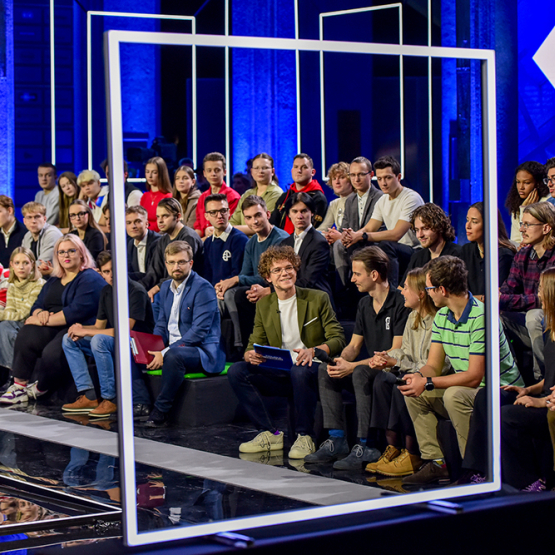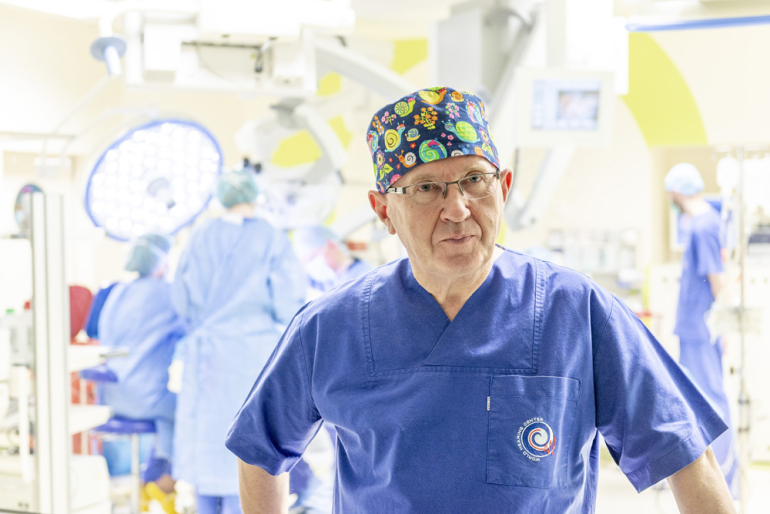
The extract of the interview with the winner of the SGH Economic Award 2024, Professor Henryk Skarżyński
Professor, please forgive me, but your accomplishment and achievements in otolaryngology, audiology, phoniatrics and paediatric otolaryngology on a global scale are so great that they are intimidating. But let’s make last things go first. What else needs to be done in these areas? What is that keeps you awake at night?
It is certainly gratifying that we have already managed to do so much. However, there are still many challenges ahead of us. About 1.5 billion people in the world have various types of hearing impairment that affect their daily performance, especially communication with the environment. In addition, life expectancy is increasing and societies are ageing, especially in the West, and more and more people are having problems with partial hearing losses. This is a great challenge for doctors and healthcare systems. It is an impulse to search for and implement new methods of treatment – the development of new surgical solutions, gene therapies and new technologies, thanks to which it will be possible to effectively counteract deafness and communication exclusion. As a physician, clinician, scientist and also a founding member of the World Hearing Forum at the WHO, I try to be strongly involved in everything that can be described today as “communication health”, which has a decisive impact on the development of modern societies around the world. Regardless of this, I am close to the patients on a daily basis and do my best when treating them. I am glad that for over 20 years we have been performing the largest number of hearing-improving surgeries in the world. I myself have already performed over 240 thousand such surgical procedures.
Let me come back to it later. And now ab ovo. Why did you choose this area of medicine? What fascinates you so much about human hearing, voice or speech?
I got into medicine thanks to a family open to challenges. About halfway through high school, following the example of my elder sister, I decided to study medicine, although from the first forms of primary school I was fascinated with history, especially the tragic history of the First Polish Republic. When I found myself at the Faculty of Medicine of the Medical University of Warsaw, I quickly decided that I would choose a specialisation related to manual activities.
In the first year of my studies, I was very good at dissecting. Then we dissected muscles, vessels, nerves and I noticed that I would probably want to go in the surgical direction, where my manual dexterity would count. I already had some experience – for years I liked DIY or drawing and I developing my imagination. I chose microsurgery and practiced threading a thread through the smallest needle eye I could find for half an hour every day, but with my hands outstretched and dipped in a large cup. The microsurgeon must be able to suspend the hand at the right moment, for example, to stop over a small element in the ear, control the slightest movement and its force. And maybe this finally led me to the choice of specialisation. If such a passion, then my specialisation should be surgery or microsurgery. And I decided very early hat I would use the skills of a microsurgeon to treat hearing impairments, when I was entrusted with the reorganisation of the ossicular bank used for transplants. But the greatest fascination with otosurgery began in 1988, when at a congress in Paris I saw the first effects of deafness treatment. This determined the launch of a new programme in Poland and performance of the first surgeries in 1992. Thanks to this, I was able to “become independent”, to be a precursor in the field of procedures that had not yet been performed in the country at that time and whose introduction in many Western countries was in its initial stage. More importantly, I observed that the problem of hearing impairment is becoming disease of civilisation at an alarmingly fast pace.
In the past, hearing loss of a seventy-year-old was considered normal. Today, noise, in-ear headphones, loud music from early childhood make this 70-year-old age limit goes down by even 20 years and the problem affects younger and younger people, and one in three primary school students already suffers from transient tinnitus.
A disease of civilisation? Is this fact in the public consciousness?
In the past, hearing loss of a seventy-year-old was considered normal. Today, noise, in-ear headphones, loud music from early childhood make this 70-year-old age limit goes down by even 20 years and the problem affects younger and younger people, and one in three primary school students already suffers from transient tinnitus. On the one hand, we have a great need to treat more and more patients with hearing impairments, and on the other hand, we have an incredible progress in medicine. Today – as Poland – we have our own school of otosurgery and an undeniable contribution to the development of world medicine.
In 2003, the first part of the World Hearing Centre was opened, which – as a team – we financed in about 80%. The second part of the Centre was established in 2012 – we financed it in about 50%. This is how the first such facility on the map of world medicine was created, in many respects. This shows our determination and organisational skills.
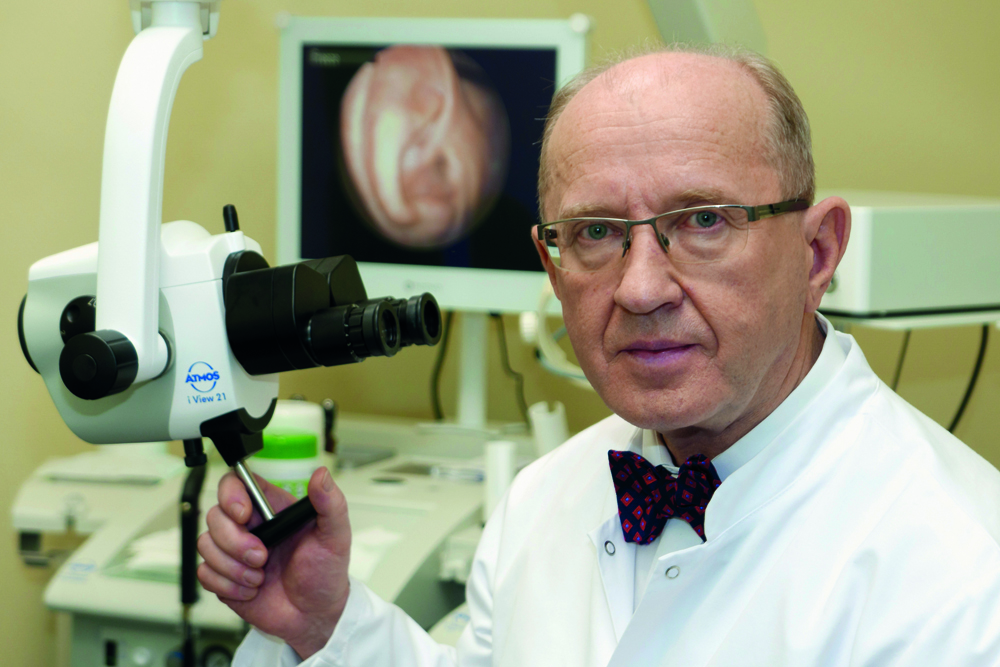
You have practically implemented almost all implantable systems to improve hearing in Poland. You were also a pioneer of these solutions in Europe and around the world. The surgical method, considered to be your specialisation, the so-called Skarżyński method, has been implemented in dozens of centres around the world. Could you explain to our readers in an accessible way what this method is and what was so innovative about it that other specialists around the world drew on it and used it?
I presented a programme of treatment of partial deafness, i.e. a hearing condition in which the patient has some remnants of hearing and is not completely deaf, for the first time in the world at an international conference in New York in 1997. It was a great challenge at the time to operate on someone who is not completely deaf, although the residual hearing can only give a sense of sound and no understanding of speech. At that time, my concept expanded surgical indications not for thousands of patients, but for millions. I presented the first results of my treatment at continental congresses in 2000. In 2002, I performed the world’s first cochlear implant surgery on an adult who could hear low sounds well, which allowed her to understand speech in 7-10%. In 2004, I performed such a procedure for the first time in the world on a child. This was a great achievement, a milestone, because at that time cochlear implants were only implanted in cases of very profound hearing impairment and total deafness.
We talked about this method and the Polish school of otosurgery during one of the debates of the 2nd Congress “Science for Society”, which took place at the Warsaw University of Technology and at the World Hearing Centre in Kajetany on 9-10 June in 2024. I encourage you to watch the video available on the nauka-dla-spoleczenstwa.pl website. In a nutshell, it can be said that surgical treatment of congenital or acquired hearing impairments with the use of cochlear implants and appropriate electrodes according to the “Skarżyński’s six steps” procedure allow to preserve the intact structure of the inner ear and the existing residual hearing or socially efficient hearing only at low frequencies. It was indeed a breakthrough in science and world medicine. In order to popularise it, I launched the world’s first educational programme, under which over 80 otosurgical sessions have already been held at the World Hearing Centre and I have performed over 1600 demonstration surgeries during conferences, symposia and congresses on four continents.
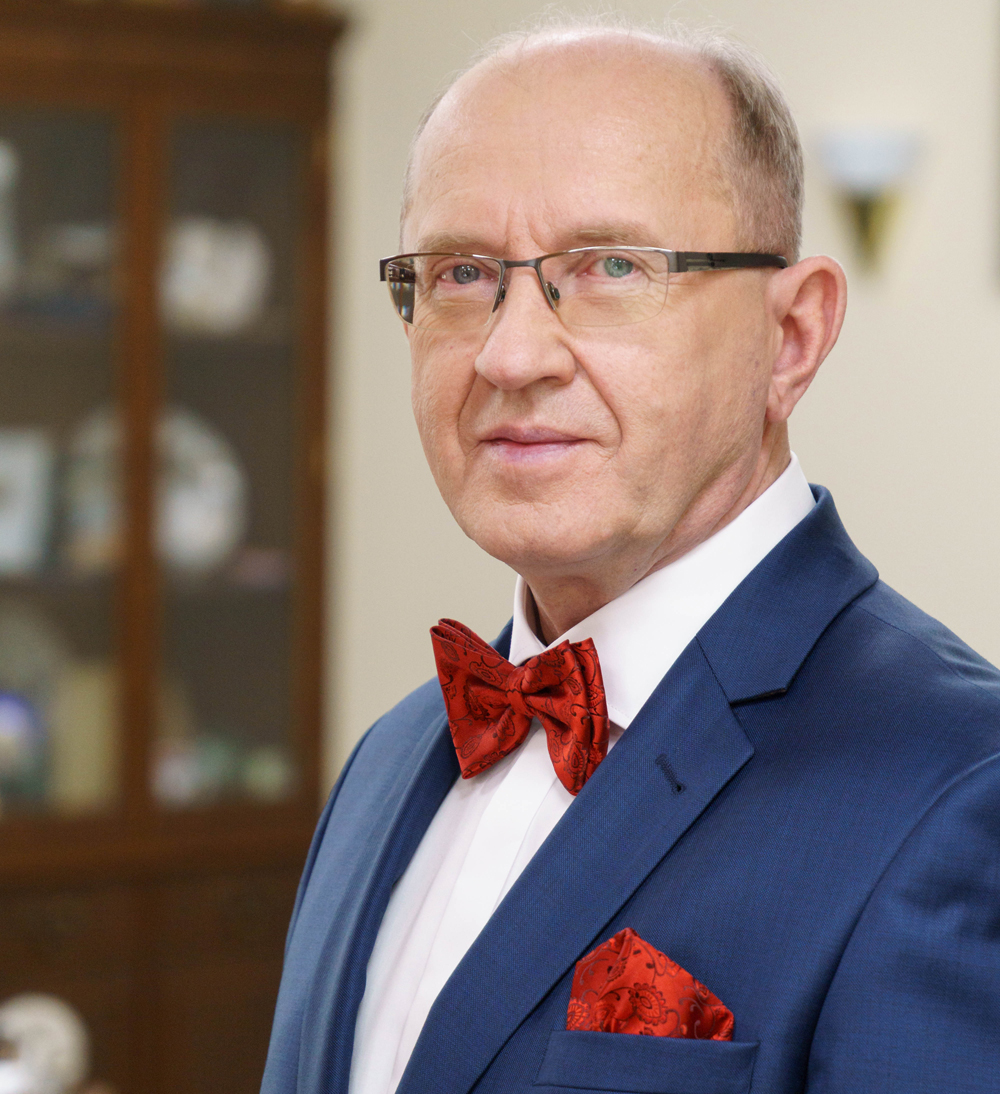
What is the measure of success from your perspective?
Invariably, for years – the sight of patients recovering to their health and hearing capacity. It is really a great satisfaction to observe how successive generations of patients return to their families, social or professional activities, and various deafness treatment programmes initiated by me at the Institute will enable them not only to study or work but also give them a chance to professionally deal with music. I have patients who sing, compose, play instruments, and even record albums and give concerts. It is with the most talented patients in mind that for ten years we have been organising the International Music Festival for Children, Youth and Adults with Hearing Disorders Beats of Cochlea. We want to show the world that thanks to the achievements of modern science and medicine, hearing problems are not an obstacle to professional music or the development of vocal talent. An extremely colorful and unique example of this is the world’s first musical with the participation of patients and users of auditory implants Broken Silence, for which I wrote the libretto. Its premiere took place at the Warsaw Chamber Opera in September 2019. The performance tells the stories of real patients who were born deaf, profoundly hard of hearing or those who lost their hearing later in life, but thanks to the progress in modern otosurgery, they can pursue their musical passions. The composer of the music of Broken Silence is an outstanding composer and arranger, phenomenal violinist and bandleader, for decades inscribed in the elite of the Polish music scene, Professor Krzesimir Dębski, and the director is Michał Znaniecki, associated with the Warsaw Chamber Opera and other institutions on five continents. In the musical, apart from professional artists, there were artists-patients, my wards. All of them are the best ambassadors of what has been achieved in the treatment of hearing disorders. Some of them spoke with me in the European Parliament at the special plenary session on science in 2018, and a larger group – also in front of members of the European Parliament and the European Commission – in 2019 during the European Research and Innovation Days. We showed then how EU funds invested in science change the lives of entire societies.
The measure of my success is, above all, a recovered patient. What we have published is also a measure. I am the author and co-author of many scientific reports. The measure is also the international arrangements adopted on our initiative, e.g. the EU Council Conclusion on the early detection and treatment of hearing, vision and speech disorders in children, including the use of e-health tools and innovative solutions. It was a key event concluding the activities carried out during the Polish Presidency of the Council of the EU in 2011, in the field of equal opportunities for children with communication disorders, which is an integral part of the priority in the area of public health.
The number of rights granted to organise seven world congresses, two continental and over 150 other international conferences and symposia is also a measure. The measure is also the unique structure of the World Hearing Centre’s facilities – the first solutions in the country and in the world, e.g. in the field of telemedicine.
You are also the author and co-author of nearly 5000 different scholarly publications, over 4000 presentations at congresses and conventions, 66 scientific and popular science monographs. You conduct extensive teaching activities for students and doctors from Poland and abroad. You have conducted demonstration surgeries for over 8000 thousand professors, heads of departments and other specialists organised in Kajetany and Warsaw, as well as in several countries in Asia, South America and Europe. In total, you have already performed over 240 thousand surgeries! You are active in numerous organisations, and you are the head of congresses. With such an intense professional life, do you find time during the day for other aspects of life? What does it occupy you, what makes you relax, what gives you pleasure?
I have never worked “from – to”, but always as long as it was necessary. Work is my passion, in which I often spend whole days. When I find time to regenerate and rest, I always something active like playing football. I also ski and every year I try to spend at least a few days with my loved ones in the mountains. Until recently, I played tennis, but I had to responsibly give it up, because it was too much of a burden for the hand, and it must be fit and perfect during surgeries. I also have a few other ways to relieve and regenerate.
Communing with nature and animals gives me a lot of energy. This is a very good, even life-giving energy. I do recommend it. There are many animals and birds in the vicinity of the World Hearing Centre. I am more and more passionate about my bee apiary. Observing the life of a bee family is like observing society. It is fascinating and motivates us to take more and more care of our health and the condition of the environment around us.
When I’m tired, I can fall asleep very quickly and in virtually any conditions. Such a dozen or so minutes of switching off during the day regenerates my strength. I also like reading, preferably books on history. History was my first passion, and I almost chose to study history rather than medicine. I’m constantly writing something – mainly for the desk drawer or occasionally for my loved ones. Despite this, more film scripts are being written and preparations are underway for the production of another musical. This time, we want to show the achievements of Polish otosurgery in the context of the history of Ludwig van Beethoven’s struggle with deafness.
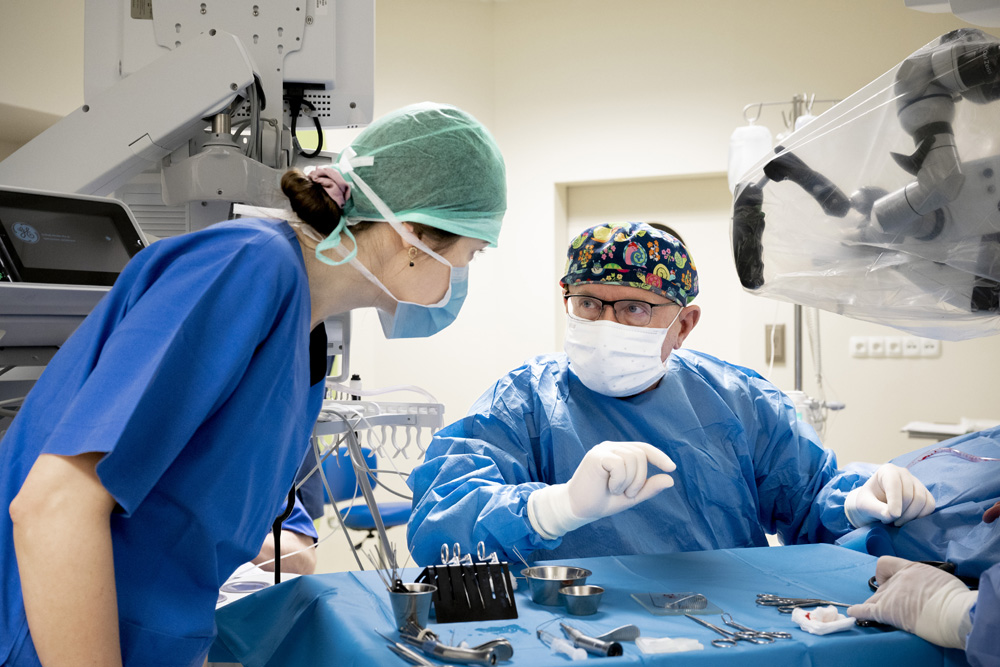
On the one hand, we have a great need to treat more and more patients with hearing impairments, and on the other hand, we have an incredible progress in medicine. Today – as Poland – we have our own school of otosurgery and an undeniable contribution to the development of world medicine.
You are also a laureate of numerous highest state decorations, awards and distinctions. It is really impossible to list them all. How do you perceive the SGH Economic Award?
I am very pleasantly surprised by it. This is an extremely important distinction for me, but also a commitment to continue working for the good of my patients, as well as for the development of medicine and healthcare system in Poland. I accept it as a distinction for the entire team which I have led for over 30 years.
In a sense, I accept it on behalf of a part of the community of people who, through their actions, are changing the organisation of the entire healthcare system in Poland. I am very impressed by the level of the Executive Master of Business Administration postgraduate studies in healthcare carried out by the SGH Warsaw School of Economics and the Medical University of Warsaw, participated by other specialists. I had a great pleasure of giving lectures to extremely demanding participants of this programme. It was a very interesting challenge as I belong to the generation which remembers that the former SGPiS was graduated by the intellectual cream of the best students. And it is still so. Therefore, I treat the recognition of my and my team’s activities by the community, the university authorities and personally by Rector Professor Piotr Wachowiak, as something extraordinary and motivating. Thank you all.
Thank you very much for your time and the exciting interview.
KAROLINA CYGONEK, Editor-in-Chief of SGH Magazine

